
Some Solution
[Re "Downtown Dilemma," August 14]: How lovely! Light-filled rooms painted a calming shade of blue. Cozy, white furniture and a recessed TV. Will it get Netflix and cable? Way to go, Vermont legislators, taking $1.1 million of taxpayer money to give addicts a nice place to shoot up. TV there, too? So, this is the solution to the appalling realities of people shooting up in front of my grandchild on Church Street, dealing drugs out car windows in the middle of the day, taking a piss on College Street?
Meanwhile, our NIMBY mayor does not want that nasty center anywhere near her street. There is nothing to be done for a mum who is scared to walk her kid on their own street. Business owners are being robbed blind. I'm looking over my 77-year-old shoulder so I don't get knifed or hit in the back of my head.
Great job, Burlington! I feel so much better now.
Eileen Cleland
Burlington
Focus on Recovery
The mention of the young man in ["Downtown Dilemma," August 14] trying desperately to stay sober among the active addicts and drug pushers is heartbreaking. Burlington is set to spend $1 million-plus to fund a safe injection site to support active, illegal drug use. Where is the money to support people, like the man in the article, who are attempting to become sober and maintain sobriety? Where is the mayor's plan to actively support this population?
Here's an idea: The low-barrier pod community experiment ends mid-June 2025. It has basically done very little toward moving this population into treatment and into permanent housing. Over the next year, transition the pod community into a supported sober-living community. The folks in recovery could also potentially become the downtown workers so desperately needed by the Church Street businesses.
It's time for city government to support the recovering community — not just the active addicts. Burlington needs to become the place to come for recovery and not the place to come to sell and score drugs with impunity.
Trudy Richmond
Burlington
What Works?
Another murder in downtown Burlington ["Bar Tab Dispute Preceded Fatal Burlington Shooting, Cops Say," August 26]. Maternal discipline promoted by the ultra-left-leaning politicians is proving itself to be unsuccessful during the initial trimester. As it moves into its second trimester, will it prove itself to be as useless as right-leaning paternal discipline?
Stephen A. Jarvis
Swanton
Bring Back Accountability
"Bad News Burlington" [From the Publisher, August 28] was appropriately titled and rings all too true. This article could certainly also have been titled "Accountability, Not Just Compassion," for that is exactly what has created this mess.
Burlington is indeed a mess. The city council's defunding of the police five years ago, as well as the state's attorney's reticence to prosecute scofflaws and the legislature's proclivity to give free handouts with no strings attached, all parallel this slide. This is to no one's surprise — except possibly those "progressives" who now scratch their heads wondering how our downtown became a haven for freeloaders, panhandlers, drug users, shoplifters and the homeless.
When handouts are freely given with no accountability, no requirements for recipients to seek work or even volunteer in any form, word on the street that there will be no prosecution for many criminal offenses, and not even sobriety requirements to live for free in shelters, pods and hotels — basically no guardrails whatsoever — Vermont and downtown Burlington now qualify for a dubious USA top-10 list for vagrancy.
The kumbaya approach does not work. A magic wand and compassion won't solve this mess. Accountability, consequences, responsibility for one's actions and developing a sense of self-worth through work/volunteerism requirements are the road out of the cycle of dependence — and the only hope for reversing "Bad News Burlington."
Nancy Berger
Shelburne
Ask Better Questions
[Re "Downtown Dilemma," August 14]: I was disappointed with the coverage in this article for its myopic focus on downstream effects. Harm reduction is great, but where is any discussion of what work can be done in the headwaters of these issues — where people are driven to sleeping in the streets, to drug use, to theft because of lack of meaningful income, housing and connection? Why aren't we asking these questions at a policy level?
I'm afraid the answer is likely because these questions are too complex, but it is an understanding of the complexity of how people end up in these situations that is required. Otherwise, we will merely be addressing the symptoms of the poly-crisis without truly looking at interventions that would prevent the issues illustrated in the article.
For starters, we could begin by addressing the extreme precarity that is palpable in Burlington at the moment — how easy it is for any person to slip into a situation where they are forced with difficult decisions and end up on the street.
We have overlapping epidemics stemming, in part, from a lack of truly affordable housing, loneliness, job insecurity, lack of livable wages, barriers to accessing nourishing food, etc. By meeting a person's basic needs, including food, shelter, water and connection, I imagine many of the dilemmas described in your article would be greatly alleviated. A well-fed, well-paid, well-housed and well-connected person has no desire to shoplift, use harmful drugs or assault others. Let's start by asking better questions.
Lucas Jackson
Randolph
A 'Dilemma' Indeed
The "Downtown Dilemma" [August 14] is a result of social policies that prioritize the freedom and dignity of individuals over other social goods, especially public safety. The concern for civil rights, combined with the shortage of inpatient psychiatric drug-treatment beds and prison capacity, has led to a reluctance to involuntarily commit those suffering from mental illness and incarcerate those committing drug-related crimes, until they rise to the threshold of violence against others. The community has become the de facto center for treatment, where resources are chronically inadequate and the police, fire and rescue services are stretched to their limits. Behaviors that were not tolerated in the past are being accommodated and normalized.
What's happened in Burlington is a good example of what Daniel Patrick Moynihan described in his 1993 essay "Defining Deviance Down: How We've Become Accustomed to Alarming Levels of Crime and Destructive Behavior." Although dated, Moynihan's essay is still relevant in describing how behaviors that were once considered unacceptable are now.
We need to have an honest, philosophical discussion of the underlying moral values and ideas guiding the current social policies. Social goods and rights must be realigned to ensure that public safety and lawfulness are prioritized and not diminished to accommodate the rights and freedom of those who continue to show that they cannot maintain their behavior within the civil bounds of society. A more tolerable definition of what's normal must be achieved for us all, not just Burlington.
David Elston
Shelburne
Bad News Burlington
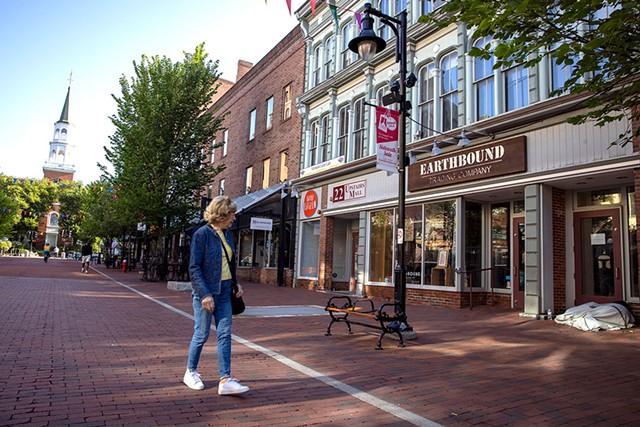
- James Buck
- Church Street
In last week’s “From the Publisher” column, we asked readers to share their views of Burlington: literally, what they’re seeing in the Queen City and if and how their behavior has changed as a result. A flood of worried, impassioned and constructive emails poured in from nearly 100 readers. Here are some excerpts from people who describe themselves as longtime residents, University of Vermont alums, tourists, workers and other Vermonters. We have not verified authorship as we would for letters to the editor, but these responses are an important part of the public dialogue about the state of our downtown. To fast-track publication of what we feel is an urgent opinion package, we stripped identifying details from these personal accounts. Take all of that into consideration when you’re reading them. You can see the entire 16,000-word collection here. Many thanks to our readers for sharing this thoughtful feedback.
Related From the Publisher: Bad News Burlington
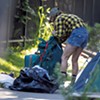
Thank you for acknowledging the unease Vermonters are feeling as we witness what is going on around us while trying to acclimate to what is very different from the Vermont we once knew and loved.
I have witnessed a man shooting up in front of the Shell gas station, shouting at two girls on their walk to school at Edmunds, "I bet you have never seen this!" I would call myself progressive and know addiction is a mental illness, but this city is hurting its kids. I have picked up many needles on the playground at the daycare center I work at. The last time I worked a security shift at the library, I picked up 47 needles on the property!
We live on College Street. Just a few years ago, we used the front porch every day — having coffee, working, even eating our dinner out there. We don't enjoy it much now because of people yelling obscenities or fighting nearby. In the past month, I've seen people arrested in front of our home and OD'ing on the lawn next door. While we used to look forward to students leaving for break, now we look forward to their return. At holidays, with businesses closed and students gone, it literally sounds like the Wild West downtown. College Street has become a drag strip after dark. It is hard to sleep peacefully.
To the best of my knowledge, Burlington has yet to realize that graffiti is a canary in the coal mine.
As an old, pretty liberal hippie, I hate to say it, but we need to increase the numbers on our police force to get back to where it once was, so patrol people can actually patrol and start getting tougher on crime. I am one of those who thinks twice about venturing uptown these days.
My husband and I were at Festival of Fools, watching the buskers. The crowd was cheering, all eyes on the entertainment. But right smack in front of us, a person flew out of one of the retail stores with an armful of clothes on their hangers. We looked at each other in disbelief — Did you just see that? — as this happened right in front of our eyes. It's really sad to see our city evolve to what it is today.
You should do a story digging into the nuts and bolts of why so many people who are committing crimes — shoplifting, open drug use, vandalism, car break-ins, home break-ins, etc. — seem to be right back on the street with no accountability. At what stage are they released, and why? Why are they not prosecuted? Is it a lack of bandwidth at the state attorney's office? Is it court backlogs? Lack of prison space? Or is it our lefty culture of considering the perpetrators themselves victims of a world that has left them homeless and drug-addled and therefore not accountable?
If you want to largely mitigate the issues affecting Burlington, it's really simple: We need more police on the streets. End of story.
Trying to be part of a solution for me is to look at people with a smile. Many, surprised, smile back.
My wife and I generally avoid going downtown now, which is a big change from what we used to do. We don't feel safe, plain and simple. This do-nothing, slap-on-the-wrist approach to crime and drug use is killing the city, closing small businesses and ruining the middle class.
I have been driving a school bus through Burlington for about five years. I have driven down Main Street around 6:30 a.m., when crime tape roped off a large portion of the area in front of city hall. As I drive by, I wonder what happened. In front of Burlington High School one morning, a naked man strolled by on the opposite side of the street. The students on board were quite upset. Having BHS on Cherry Street has made for an often anxiety-filled trip.
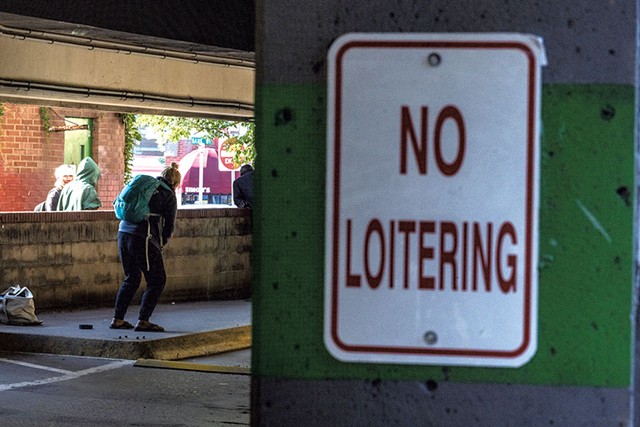
- James Buck
- People in the Cherry Street parking garage
We moved out of Burlington because our city wasn't a place we loved anymore — from the streets to the schools. Moving to Houston, Texas, I would have expected to see more homeless in the city, but when I didn't see anyone at corners or under bridges or hear anyone talk about homeless or drug issues, I wondered why. Houston has a "Housing First" model, and it has worked. It's also illegal to feed the homeless. When you feed one cat, more will come.
Regarding places that have done well to address some of the unfortunate behavior, Austin, Texas, stands out. There's been good coverage of this in the New York Times, the New Yorker and surely elsewhere. Anecdotally, based on a recent visit there, their efforts seem to be paying off.
We still consider Burlington as a mecca for good food and cultural events. But we are now more likely to go earlier in the day. And shopping on Church Street, which we used to love, is no longer a fun experience for us. Most stores feel — and behave — like they are in a war zone. We shop elsewhere or online.
I took my girls downtown to Church Street to do a little back-to-school shopping. We wound up going to CVS on Church Street at 5 p.m. to get a book binder and a spiral notebook. Just after we entered, a woman came in yelling for help for her boyfriend, who had just been pepper-sprayed. She ran over to the cooler and grabbed a gallon of milk. A guy comes in with no shirt, cutoff shorts, eyes puffy and swollen red, moaning and staggering, and the woman yells, "I'll come back and pay for this." As we're leaving the store, the security guard is pouring milk on the head of this man who's been pepper-sprayed, telling him not to rub his face or eyes. The sprayed man is coughing and retching. My girls, of course, asked me: "Dad, what's pepper spray?" I said what I thought it was. She asked, "How did he get pepper spray on him?" I said, "I have no idea, but that's a great question." As we left the scene, the man was moaning and had the security guard pour milk down the front of his trousers because I assume his genitals got pepper spray on them, too. My girls were still a bit fascinated. There was milk on the sidewalk, a police officer approaching, and everyone around had their phones out photographing or videoing this episode while enjoying Ben & Jerry's ice cream. It was strange, sad and part of the new norm.
Church Street's recognition as being one of America's greatest Main Streets is most certainly in jeopardy.
Too many people want the "administration" to take care of the problems. Too many people are fearful of the outcomes should they lend a hand. I wish we could come up with a one-size-fits-all solution, but that is a long way off. In the meantime, we have to be patient and deal with kindness toward those less fortunate than us.
One day last summer I came out of my office to find a man with a bat, bleeding and sweating and begging me to let him back into the bathroom. Another day someone was drying his socks on the radiator, which emanated a smell throughout the building. These experiences absolutely broke my heart and, more than feeling unsafe, I just felt deep grief that we have to watch this happen and walk on by. Yet what to do? Now I walk down Church Street at lunchtime, regularly give a little money to those who are clearly suffering, and cry a little, knowing this will never be enough. Nor will trying to talk about it feel sufficient, especially when the general response seems to be apathy, doubling down on individualism, judgment or a survival mix of all three.
We are witnessing an exodus from downtown, including retail businesses, restaurants and office workers. We need to put the brakes on this, or our Queen City will be a ghost town.
We had friends from Los Angeles visit last week. Their question was: What happened?
I would like to see some reporting on the people who are homeless, addicted, arrested. Who are they? Are they Vermonters? If not, where did they come from? How did they get in the situation they are in? What kind of help would they respond to? What do they feel they most need? And so on. I think there are too many myths floating around about these people and their problems. I would like to have a better understanding of their issues.
Our middle child is considering attending the University of Colorado Boulder next year. He and my wife visited in July and noted the strong similarities between Boulder and Burlington. They also quickly realized a striking dissimilarity. There did not seem to be the same level of homelessness, public intoxication and open drug use found in Burlington. Like the parents quoted in your letter, I would have the same concerns about my child attending UVM. Burlington is not the same city it was when I attended UVM. It is not even close to the same city it was when we returned to start our family here 20 years ago. Given the choice between a place like Boulder and Burlington, I believe more and more students and families will choose Boulder because of the rapid decline in the quality of life in Burlington.
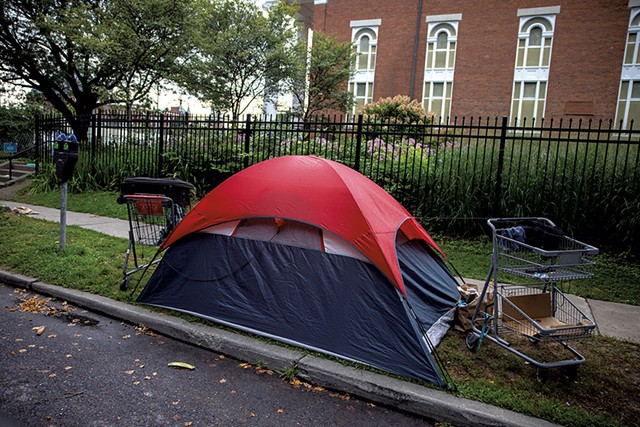
- James Buck
- A tent on Buell Street
My son was visiting a couple of weekends ago. As we drove up Main Street from the waterfront, he looked about and said, "Wow, a lot of sketchy-looking people here" as we drove by City Hall Park to City Market, treated to the spectacle of people "nodding off" at 4:30 p.m. And he lives in New York City, no stranger to these sights.
I feel bad that I cannot share our downtown with my grandchildren and that we don't feel safe using it, but I am willing to do my part to help find a solution.
No one in our community has the ability to solve the drug problem, but there are many who have the ability to enact policies around policing, camping, petty crime and loitering that could help the perception of the citizens. The conversation always seems to end at "What do we do?" Although I don't have a surefire answer, I do know one thing: Being afraid to criticize those in power isn't going to lead to anything productive. The progressive talking points around harm reduction are not getting the job done.
As we live out our country's bigger broken system that is resulting in addiction, violence and people living on the street, it's clear Vermont can't maintain its "bubble" status anymore. A lot is on Mayor Emma Mulvaney-Stanak's shoulders, and she can't single-handedly solve it, nor can U.S. Sen. Bernie Sanders, even though I'm sure they are doing their best.
"Have you been to a city that has figured it out?" In fact, I have. That city is Erlangen, Germany. I always think of it as "the city that Burlington should grow up to be." It is known as a university and medical city with a population of about 110,000, and despite having more than twice the population of Burlington, it is completely devoid of the problems that Burlington currently struggles with. Unhoused people are rarely seen in Erlangen, and there are no encampments. There is no open IV drug use or stories about rampant theft and property crime. Gun violence is nonexistent. The plazas and tunnels of Erlangen's train station are unproblematic. One or two professional beggars kneel quietly along the Neuer Markt with cup in hand, but that's about it.
Life on Clarke Street has changed considerably. We view the pod community as the major reason. It has brought a large homeless population to this part of the Old North End. Twice, our tenants have had to deal with human excrement in the yard. They've had items stolen from the yard and the mailboxes. And the Howard Center across the street is now party central, with groups spread out on the front lawn and often using the needles they get from the center right in front of the center or on our side of the street. The city council has systematically destroyed the livability of the neighborhood.
I think the key lies in building a sense of community between the police, politicians and folks on the street. We must all be present and visible. We must occupy space, not hide in our little enclaves and view the city as a place to avoid. Hyping every criminal incident in the press magnifies the fear, which is quite unfounded, as nearly all the worst incidents are not random but involve people known to each other.
I feel so sad and troubled about the state of things downtown. I'm also sad to say that I avoid going downtown whenever possible now, and I am considering finding a new hair salon in a neighboring town. I know Burlington needs my business, but until things improve, I need to prioritize my own comfort and safety.
We used to love showing off downtown to our friends and family from out of state — 30 years of being proud tour guides. Now, we take no one to Burlington. We encourage everyone to go to other parts of the state.
The city of Portland, Ore., is restructuring many of its public policies related to drug-use disorder to revive its beautiful downtown and surroundings.
We cannot complain when the consequences of our unwillingness to take care of people show up. So, let us turn this around by creating a tax system that creates the revenues we need to take care of everyone.
Raise the pay for police officers and social workers in order to attract additional competent individuals. Train them and hold officers accountable for their actions, but support them.
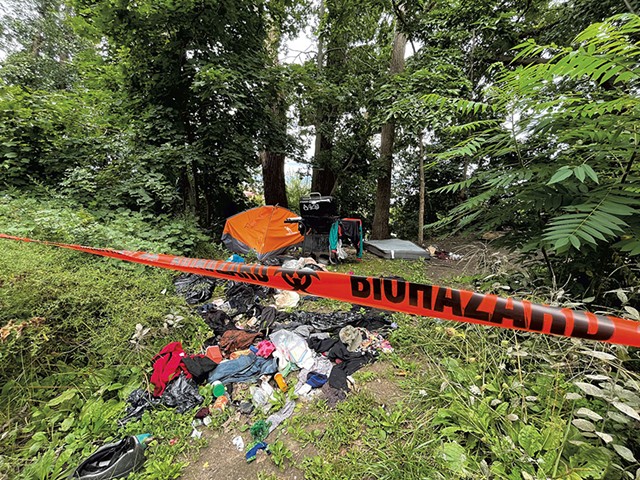
- Paula Routly ©️ Seven Days
- Campsite on Depot Street
We need more beds statewide for mental health and substance-abuse treatment. Some of those beds need to be lockdown beds as an alternative to letting these repeat offenders go. There are plenty of vacant buildings, so why aren't we transitioning those structures? We also need halfway houses.
The Old North End is not the same. I have had people shooting up on my porch, trash and recycling cans both stolen, bikes dumped on my property, my car broken into, and I can't even begin to describe the amount of trash dumped on my lawn as well as so many needles. I am sadly and reluctantly moving out of Burlington in the fall, and this is the main reason.
Thank you for the continued spotlight on the drug problem and complete lack of intent to solve it by the City of Burlington at large. The mayor said they are "adapting," and that is BS; they are "accepting," and that is unacceptable. I'm a Winooski resident who worries that city will follow in the footsteps of that acceptance that Burlington has adopted.
Every year for the past decade, we have traveled north and stayed in Burlington hotels to enjoy a visit. This year we are staying home, sadly. We've seen the steady decline of your city and no longer feel safe or comfortable being there. My son is a recovering addict of 13-plus years clean and sober. I get the dilemma of homelessness and addiction. What I don't get is why the powers that be in your city can't seem to come together and work together for the greater good of this beloved city. I understand that change takes time and won't happen overnight. What's heartbreaking to me is that it hasn't even seemed to start.
Nothing is gained by pretending a problem doesn't exist.
I just heard from a family visiting from Colorado. They visited the Fletcher Free Library and encountered someone shooting up right there out in the open! They have very young children and were stunned!
I volunteer at Jenna's Promise facilitating a group of family members, loved ones and friends of people struggling with addiction. Many of the folks in the group have lost loved ones to overdose and suicide. One woman whose daughter has put her and her family through decades of awfulness recently told me, "Don't give up on Burlington." While she can no longer conjure up much hope that her daughter's behavior will change, she still has hope for Burlington.
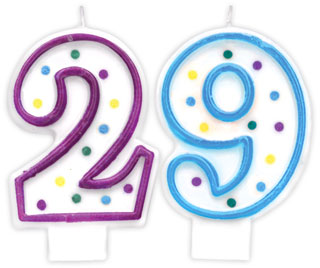


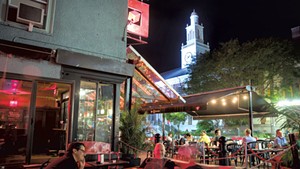
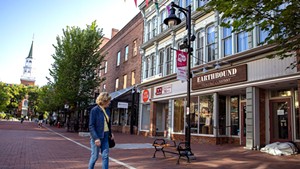

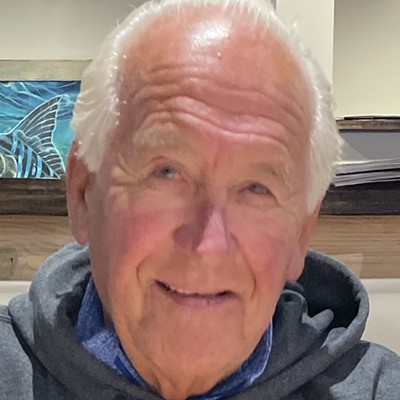
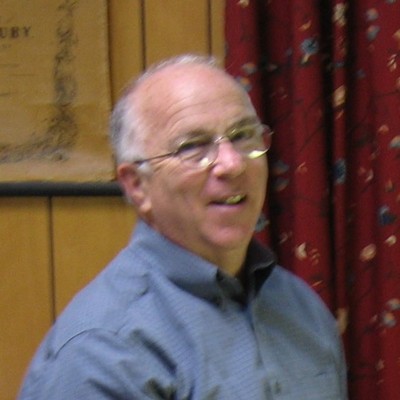

Comments
Comments are closed.
From 2014-2020, Seven Days allowed readers to comment on all stories posted on our website. While we've appreciated the suggestions and insights, right now Seven Days is prioritizing our core mission — producing high-quality, responsible local journalism — over moderating online debates between readers.
To criticize, correct or praise our reporting, please send us a letter to the editor or send us a tip. We’ll check it out and report the results.
Online comments may return when we have better tech tools for managing them. Thanks for reading.